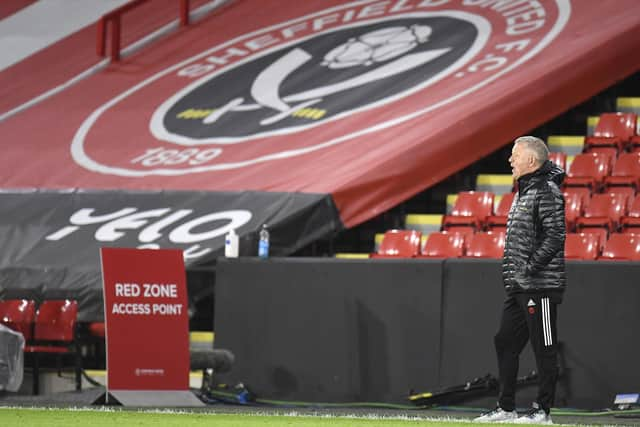Alan Biggs: The reason Sheffield United lag behind others in top flight recruitment
and live on Freeview channel 276
National pundits criticised the club for prioritising a raft of signings from the level the Blades had left behind - but it was an entirely sensible policy that worked better than anyone could have foreseen.
However, when the time comes to debrief on the events of this season, it will be the summer of 2020 from which United have most to learn.
Advertisement
Hide AdAdvertisement
Hide AdThat’s when, in my opinion, their attempts to cement themselves in the top flight went awry.


Hindsight is wonderful and there are no fingers pointed here. But on reflection the club did not make the calibre of signing needed to kick on.
The previous season was a different matter entirely. Manager Chris Wilder, knowing his limitations, fronted a deliberate policy of targeting players he and his recruitment team believed had the potential to make the jump from below.
As, for instance, John Egan assuredly did, Lys Mousset more than suggested he could in patches and arguably Oli McBurnie didn’t, though he’s remained a genuine contributor.
Advertisement
Hide AdAdvertisement
Hide AdBy and large, all the promotion heroes rose to the challenge and, from a chat with Wilder that summer, he fully expected to stay up.
When I suggested the second season would be more difficult without the acquisition of proven top flight quality he didn’t disagree.
What neither of us bargained for was an undreamt of push for Europe and a finishing position of ninth which, in retrospect, created a rod for Wilder’s own back.
Roll on to last summer and that is when United needed to up the ante. Not talking about fees here. The Blades have paid in the region of £20m three times now.
Advertisement
Hide AdAdvertisement
Hide AdThat’s still modest in Premier League terms but an historic stretch for United, even if the £5m initial down payments in each case did not unduly dent the rich revenue streams Wilder’s success had created.
Where the Blades are really lagging behind is on wage scale. The club’s top earners are pulling around £45,000 a week. That’s huge money for you and I, but two and three times less than established top flight regulars command.
This is the gap I feel United have to bridge at their next opportunity, either by creative financing or attracting suitable investment.
That said, no-one wants to see reckless spending that endangers the club for the future, so it is a fine balance.
Advertisement
Hide AdAdvertisement
Hide AdAll in all, I’m genuinely not surprised that United have struggled this season, though never imagining the extent of it.
For all that, the last two performances have shown a team and squad very much in there fighting, despite the loss of key players. It’s not over yet.
But it is important is that the Blades have a fall back position rather than a crash landing.
They have the best manager to bring them back and a squad that looks more than capable.
Burnley are among clubs in recent years who only established themselves at the second attempt. Norwich could well follow suit.
That can be Sheffield United.